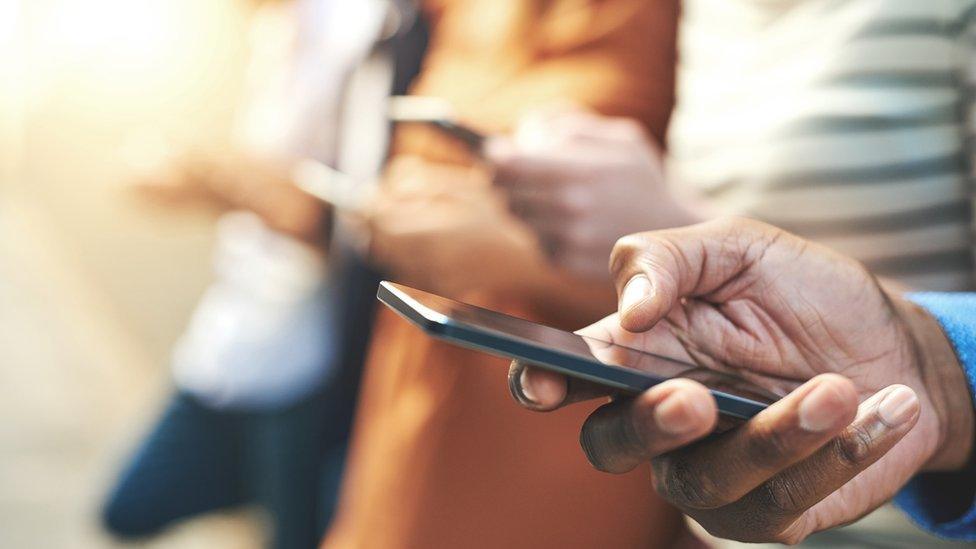Conversion therapy: UK government to fund helpline
- Published

People contacting the helpline will receive tailored pastoral support
The government is to fund a helpline for people who have had, or are at risk of, all forms of so-called conversion therapy.
It will give tailored pastoral support to transgender people as well as those who are lesbian, gay or bisexual.
The announcement comes despite a decision to exclude attempting to change a person's gender identity from a planned conversion-therapy ban.
The service will be run by LGBT anti-violence charity Galop for three years.
Galop's National Conversion Therapy Helpline, launched in November, will expand to include a live-chat function and information service, in addition to a phone line and email-based support.
'Compassionate support'
The helpline, the first of its kind to be funded by a government, will cost more than £300,000 to run.
Equalities Minister Mike Freer said conversion therapy "has no place in modern society" and action was being taken to "ensure it is banned in the UK".
Announcing the funding, he said: "Conversion therapy blights people's lives - and can never achieve its intended outcomes."
And the service would provide "victims of conversion therapy with effective and compassionate support".
Conversion therapy - sometimes called "gay cure" therapy - tries to supress someone's sexual orientation or stop them living as a different gender to their sex recorded at birth.
It can include talking therapies and prayer but more extreme forms may involve physical violence.
The planned ban will protect children but will not apply to over-18s who consent to conversion therapy.
Galop's service was a "vital lifeline", chief executive Leni Morris said.
"Sadly, conversion therapy in the UK has been quite an invisible form of abuse and violence perpetrated against LGBT+ people - and the prevalence has been seriously underestimated," she added.
According to a survey of just over 5,000 people, by Galop earlier this year, 5% of LGBT people have experienced conversion practices driven by family members.
Among those who identified as trans or non-binary, this proportion increased to 11%.
'Piecemeal approach'
This week's Queen's Speech confirmed the ban planned for England and Wales - to stop "abhorrent practices" aiming to change sexual orientation - would not apply to attempts to change gender identity.
Separate work would look at the "complexity of issues" relating to transgender conversion therapy, it said.
But the announcement the government is funding the helpline, welcomed by campaigners, has prompted some to repeat calls for the ban to cover trans people.
Jayne Ozanne, who quit her role as an LGBT adviser to the government last year and now chairs the Ban Conversion Therapy Coalition, said: "As a survivor of conversion therapy myself, I know it's incredibly important to find safe places we can go to and talk through the trauma.
"But this is a very piecemeal approach.
"It's deeply ironic the government is looking to support victims of conversion therapy without actually putting in the protections in the first place to stop them going through it."
'Jeopardise freedoms'
Last month, the Women's Rights Network said it agreed with the decision to exclude trans people from the ban, pointing to a recent interim report into gender-identity services in England, which calls for a different model of care.
"Watching-and-waiting therapies are not 'conversion'," it said.
The Church of England supports banning all forms of conversion therapy - but some other religious groups are concerned.
The Evangelical Alliance, which says it represents 3,500 churches, has previously said it could jeopardise freedoms, such as supportive prayer.
A government source told BBC News: "It is important that anyone impacted by conversion therapy has the support they need - that has never been in any doubt."
The National Conversion Therapy Helpline is accessible 10:00-16:00, Monday to Friday, via 0800 130 3335 or by emailing CThelp@galop.org.uk.